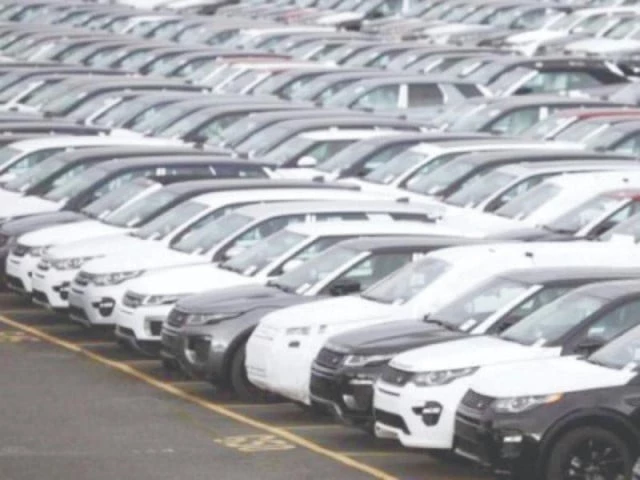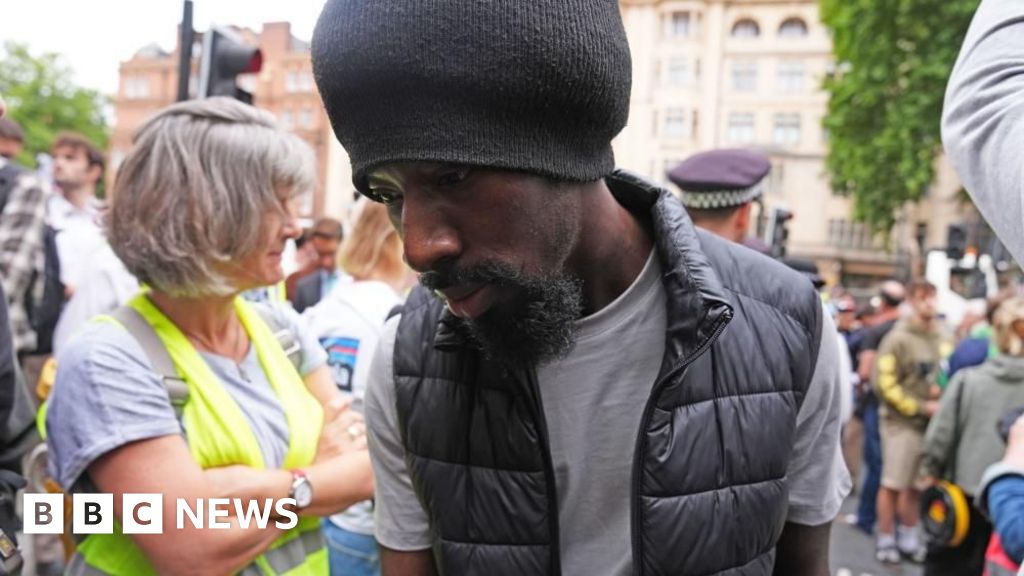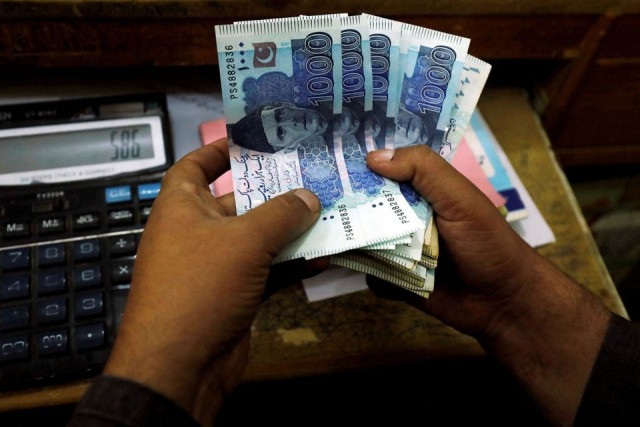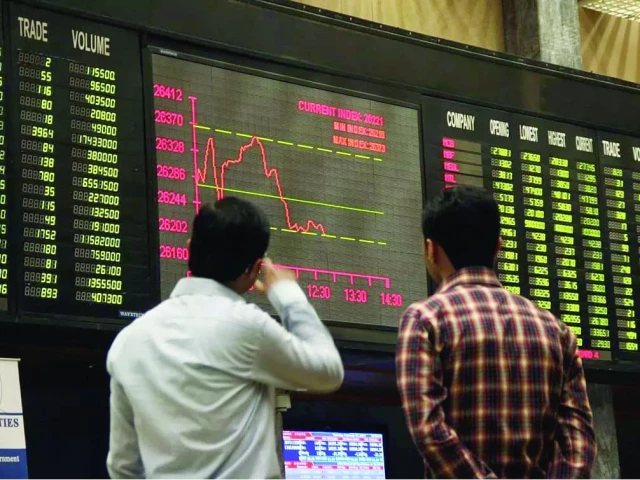Business
Auto financing hits 25-month high | The Express Tribune

KARACHI:
Auto financing continued its upward trajectory, hitting a 25-month high of Rs286 billion in July 2025, according to the latest data released by the State Bank of Pakistan (SBP) and compiled by Topline Research.
The July 2025 figures mark a 25% year-on-year (YoY) increase and a 3% month-on-month (MoM) rise, highlighting improving consumer appetite for car purchases amid an easing interest rate environment. This is the highest level since June 2023, when financing stood at Rs285 billion.
Despite the rebound, auto financing remains 22% lower than the all-time peak of Rs368 billion recorded in June 2022, when aggressive consumer borrowing coincided with strong vehicle demand. The subsequent decline was triggered by soaring borrowing costs, import restrictions on raw materials and automotive parts, and a broader economic slowdown that severely dented car sales and leasing activity.
Analysts believe the recent turnaround reflects recovering consumer confidence, driven by declining interest rates following the SBP’s monetary easing cycle, as well as stabilisation in the exchange rate and gradual improvement in supply chains. Auto financing is finally showing signs of recovery after two years of contraction. The consistent monthly growth suggests that demand is returning, and this momentum is likely to continue if monetary easing persists.
“The recovery reflects improving consumer demand amid falling interest rates and is expected to further lift auto sector sentiment, with stronger sales and earnings outlook for listed companies,” said market experts at Topline Research. The revival in auto financing is expected to boost sentiment in the automobile sector, which has faced one of its toughest downturns in recent history. Listed auto assemblers and allied sectors, such as parts manufacturers, may benefit through improved sales volumes and a stronger earnings outlook in the coming quarters.
Industry observers caution, however, that sustained growth will depend on further cuts in financing rates, stable macroeconomic conditions, and consumer purchasing power. With auto financing back on the rise, the sector may be entering a new growth cycle, giving much-needed support to Pakistan’s struggling economy.
Commenting on the recent rise in auto financing, auto industry expert Mashood Ali Khan said that while the sector is seeing renewed momentum, several economic challenges remain.
He noted that car financing had touched Rs360 billion in 2022, and to return to that level, Pakistan would require single-digit interest rates, compared with the current 11%. “If interest rates fall further, automobile sales will definitely get a boost. However, the industry faces very difficult challenges,” he said. Khan highlighted that despite some improvement, Pakistan’s foreign exchange reserves have not grown significantly, while budgetary measures tied to the International Monetary Fund (IMF) programme are gradually increasing import pressures. He warned that although inflation has been contained, a rapid cut in interest rates could reignite price pressures in the auto sector.
“The rupee has remained stable around 280, which is positive, but sustaining this stability will be difficult if inflation rises again,” he added. Another key obstacle, according to him, is that purchasing power has not improved sufficiently, leaving a gap between demand potential and actual consumer affordability.
He also stressed the need for policy stability to restore the confidence of industrialists and investors. “Sometimes imports of used cars are opened, sometimes restricted. This inconsistency shakes business trust. Over the past two and a half years, many industrialists and skilled youth have left the country,” he remarked.
Khan emphasised that to counter the challenges from lower interest rates, Pakistan must strengthen exports, an area that requires long-term planning, incentives, and facilitation in special economic zones. He also pointed to the concerns raised by chambers of commerce in recent months over unfriendly regulations, underlining the importance of supportive policies for SMEs and industrial protection.
“The direction is right, but stability and continuity in policies are crucial,” Khan concluded.
Business
Serial rail fare evader faces jail over 112 unpaid tickets

One of Britain’s most prolific rail fare dodgers could face jail after admitting dozens of travel offences.
Charles Brohiri, 29, pleaded guilty to travelling without buying a ticket a total of 112 times over a two-year period, Westminster Magistrates’ Court heard.
He could be ordered to pay more than £18,000 in unpaid fares and legal costs, the court was told.
He will be sentenced next month.
District Judge Nina Tempia warned Brohiri “could face a custodial sentence because of the number of offences he has committed”.
He pleaded guilty to 76 offences on Thursday.
It came after he was convicted in his absence of 36 charges at a previous hearing.
During Thursday’s hearing, Judge Tempia dismissed a bid by Brohiri’s lawyers to have the 36 convictions overturned.
They had argued the prosecutions were unlawful because they had not been brought by a qualified legal professional.
But Judge Tempia rejected the argument, saying there had been “no abuse of this court’s process”.
Business
John Swinney under fire over ‘smallest tax cut in history’ after Scottish Budget

John Swinney has been pressed over whether this week’s Scottish Budget gives some workers the “smallest tax cut in history” – with Tory leader Russell Findlay branding the reduction “miserly” and “insulting”.
The Scottish Conservative leader challenged the First Minister after Tuesday’s Holyrood Budget effectively cut taxes for lower earners, by increasing the threshold for the basic and intermediate bands of income tax.
But Mr Findlay said that would leave workers at most £31.75 a year better off – saying this amounts to a saving of just £61p a week
“That wouldn’t even buy you a bag of peanuts,” the Scottish Tory leader said.
“John Swinney’s Budget might even have broken a world record, because a Scottish Government tax adviser says it ‘maybe the smallest tax cut in history’.”
Raising the “miserly cut” at First Minister’s Questions in the Scottish Parliament, Mr Findlay demanded to know if the SNP leader believed his “insulting tax cut will actually help Scotland’s struggling households”.
The attack came as the Tory accused the SNP government of increasing taxes on higher earners, with its freeze on higher income tax thresholds, which will pull more Scots into these brackets.
This is needed to pay for the “SNP’s out of control, unaffordable benefits bill”, the Conservative added.
Mr Findlay said: “The Scottish Conservatives will not back and cannot back a Budget that does nothing to help Scotland’s workers and businesses.
“It hammers people with higher taxes to fund a bloated benefits system.”
Hitting out at Labour – whose leader Anas Sarwar has already declared they will not block the government’s Budget – Mr Findlay said: “It is absolutely mind-blowing that Labour and other so-called opposition parties will let this SNP boorach of a budget pass.
“Don’t the people of Scotland deserve lower taxes, fairer benefits and a government focused on economic growth?”
Mr Swinney said the Budget “delivers on the priorities of the people of Scotland” by “strengthening our National Health Service and supporting people and businesses with the challenges of the cost of living”.
He insisted income tax decisions in the Budget would mean that in 2026-27 “55% of Scottish taxpayers are now expected to pay less income tax than if they lived in England”.
The First Minister went on to say that showed “the people of Scotland have a Government that is on their side”.
Referring to polls putting his party on course to win the Holyrood elections in May, the SNP leader added that “all the current indications show the people of Scotland want to have this Government here for the long term”.
Benefits funding is “keeping children out of poverty”, he told MSPs, adding the Budget contained a “range of measures” that would build on existing support.
The First Minister said: “What that is a demonstration of is a Government that is on the side of the people of Scotland and I am proud of the measures we set out in the Budget on Tuesday.”
Meanwhile he said the Tories wanted to make tax cuts that would cost £1 billion, with “not a scrap of detail about how that would be delivered”.
With the weekly leaders’ question time clash coming less than 48 hours after the draft 2026-27 Budget was unveiled, the First Minister also faced questions from Scottish Labour’s Anas Sarwar, who insisted that the proposals “lacks ambition for Scotland”.
Pressing his SNP rival, the Scottish Labour leader said: “While he brags about his £6 a year tax cut for the lowest paid, one million Scots including nurses, teachers and police officers face being forced to pay more.
“Even his own tax adviser says this is a political stunt. So why does John Swinney believe that someone earning £33,500 has the broadest shoulders and therefore should pay more tax in Scotland?”
Mr Swinney, however, said that many public sector workers would be better off in Scotland.
He told the Scottish Labour leader: “A band six nurse at the bottom of the scale will take home an additional £1,994 after tax compared to the same band in England.
“A qualified teacher at the bottom of the band will take home £6,365 more after tax in Scotland than the equivalent in England. There are the facts for Mr Sarwar.”
Business
BP cautions over ‘weak’ oil trading and reveals up to £3.7bn in write-downs

BP has warned it expects to book up to five billion dollars (£3.7 billion) in write-downs across its gas and low-carbon energy division as it also said oil trading had been weak in its final quarter.
The oil giant joined FTSE 100 rival Shell, after it also last week cautioned over a weaker performance from trading, which comes amid a drop in the cost of crude.
BP said Brent crude prices averaged 63.73 dollars per barrel in the fourth quarter of last year compared with 69.13 dollars a barrel in the previous three months.
Oil prices have slumped in recent weeks, partly driven lower due to US President Donald Trump’s move to oust and detain Venezuela’s leader and lay claim to crude in the region, leading to fears of a supply glut.
In its update ahead of full-year results, BP also said it expects to book a four billion dollar (£3 billion) to five billion dollar (£3.7 billion) impairment in its so-called transition businesses, largely relating to its gas and low-carbon energy division.
But it said further progress had been made in slashing debts, with its net debt falling to between 22 billion and 23 billion dollars (£16.4 billion to £17.1 billion) at the end of 2025, down from 26.1 billion dollars (£19.4 billion) at the end of September.
It comes after the firm’s surprise move last month to appoint Woodside Energy boss Meg O’Neill as its new chief executive as Murray Auchincloss stepped down after less than two years in the role.
Ms O’Neill will start in the role on April 1, with Carol Howle, current executive vice president of supply, trading and shipping at BP, acting as chief executive on an interim basis until the new boss joins.
Ms O’Neill’s appointment has made history as she will become the first woman to run BP – and also the first to head up a top five global oil company – as well as being the first ever outsider to take on the post at BP.
Shares in BP fell 1% in morning trading on Wednesday after the latest update.
-

 Politics1 week ago
Politics1 week agoUK says provided assistance in US-led tanker seizure
-

 Entertainment1 week ago
Entertainment1 week agoDoes new US food pyramid put too much steak on your plate?
-

 Entertainment1 week ago
Entertainment1 week agoWhy did Nick Reiner’s lawyer Alan Jackson withdraw from case?
-

 Business1 week ago
Business1 week agoTrump moves to ban home purchases by institutional investors
-

 Sports5 days ago
Sports5 days agoClock is ticking for Frank at Spurs, with dwindling evidence he deserves extra time
-

 Sports1 week ago
Sports1 week agoPGA of America CEO steps down after one year to take care of mother and mother-in-law
-

 Business1 week ago
Business1 week agoBulls dominate as KSE-100 breaks past 186,000 mark – SUCH TV
-
Sports6 days ago
Commanders go young, promote David Blough to be offensive coordinator












